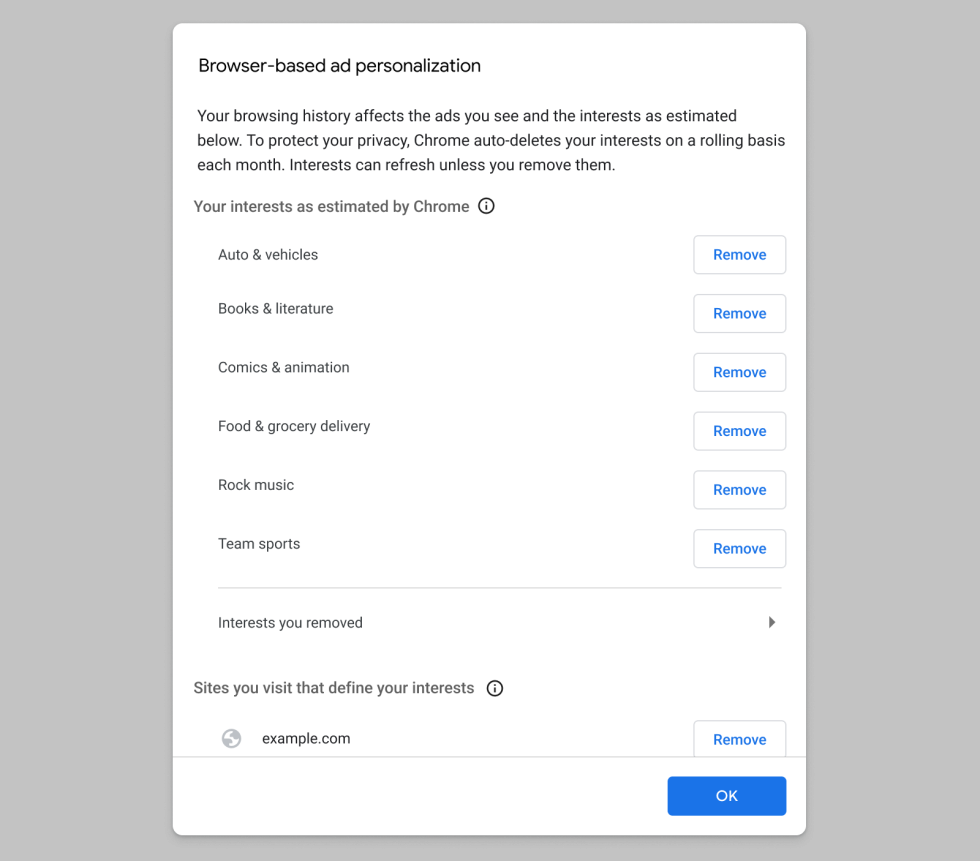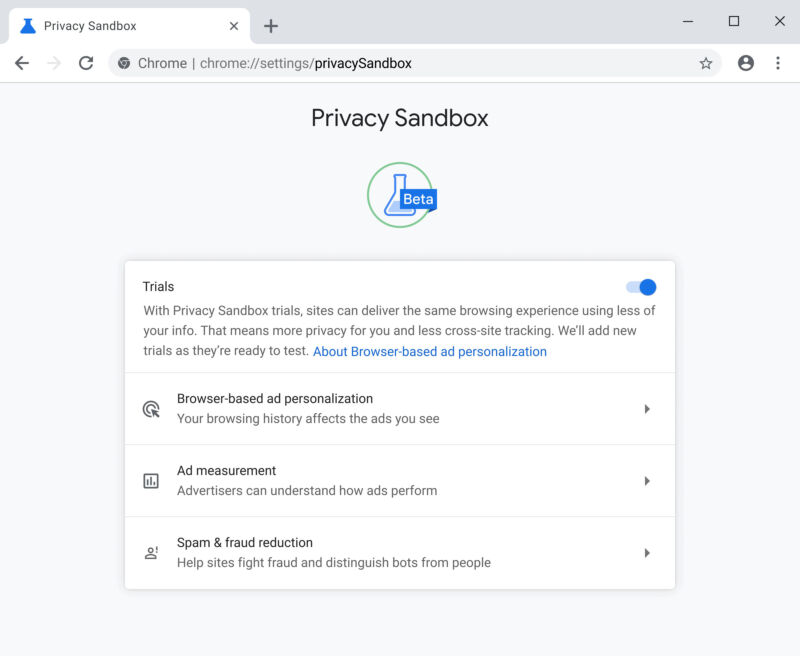Google is on a quest to kill the third-party web cookie, which is often used by advertisers to track users for targeted ads. Unlike other browser companies like Apple and Mozilla, which block third-party cookies outright, Google is one of the world's largest advertising companies. It doesn't want to kill the third-party cookie without first protecting its primary revenue source. Google seems to view user tracking as a mandatory part of Internet usage, and instead of third-party cookies, it wants to build a user-tracking system directly into its Chrome browser. Google's eye-roll-inducing name for this advertising system is the "Privacy Sandbox," and on Thursday, the company released its latest tracking solution in Chrome's nightly "Canary" builds.
The latest Chromium Blog post laid out the current timeline, "Starting today, developers can begin testing globally the Topics, FLEDGE, and Attribution Reporting APIs in the Canary version of Chrome. We’ll progress to a limited number of Chrome Beta users as soon as possible. Once things are working smoothly in Beta, we’ll make API testing available in the stable version of Chrome to expand testing to more Chrome users."
Topics will have Chrome locally track your browsing history and build a list of interests, which Chrome will then share with advertisers whenever they ask for ad targeting. If you want a breakdown of the API name-checked in Google's statement, the FLEDGE API is responsible for both running an ad action directly on your device and picking an advertiser and then targeting users based on behavior, like leaving an item in a shopping cart. The Attribution Reporting API is responsible for measuring ad clicks, impressions, and tracking purchase conversions.

Besides getting the first build of the system up and running for advertisers, Thursday's release also gives us a look at what the user controls will look like. There is now a chrome://settings/privacySandbox page, where you can enable or disable the trial. The "browser-based ad personalization" page lets you see what topics Chrome believes you're interested in, and you can remove any you don't like.
Again, this is only on the experimental Chrome Canary browser, which no one uses as a daily driver, so it will be a while before most people see these controls. Google has the first prototypes out there and said: "We strongly encourage developers to share feedback publicly and with Chrome, and we’ll closely monitor progress along the way. We also welcome the role industry associations can play in this process, from facilitating collaborative industry tests to aggregating feedback themes."
Google's first swing at a Chrome user-tracking system was called FLoC, but after many privacy advocates spoke out against that idea, Google dropped it and pivoted to the current "Topics" solution. There isn't a huge difference between the two systems, other than it seems less likely that someone would be able to individually target a user with the Topics API. It's hard to not find both proposals extremely gross. Google argues that it is mandatory that it builds a user tracking and advertising system into Chrome, and the company says it won't block third-party cookies until it accomplishes that.
Google built its empire on the back of its advertising and user-tracking systems and receives 82 percent of its total revenue from ads. A lot of Google products are developed, launched, and shut down with absolutely no bearing on Google's bottom line, but this is the foundation of the Google empire that we're talking about. It seems existentially important that Google forces a favorable outcome, no matter what the rest of the Internet says.
Listing image by Getty Images



3175x175(CURRENT).thumb.jpg.b05acc060982b36f5891ba728e6d953c.jpg)


Recommended Comments
There are no comments to display.
Join the conversation
You can post now and register later. If you have an account, sign in now to post with your account.
Note: Your post will require moderator approval before it will be visible.